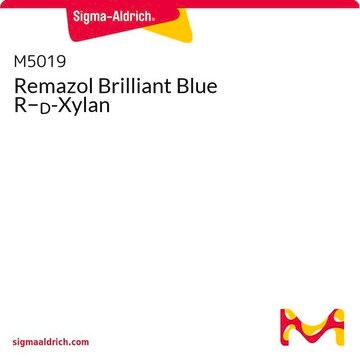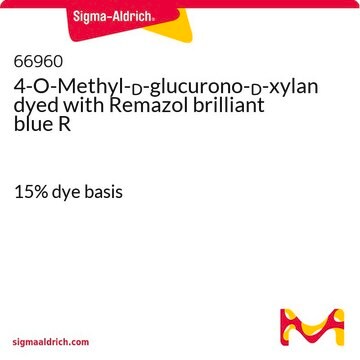X3876
Xylanase from Trichoderma viride
lyophilized powder, 100-300 units/mg protein
Synonym(s):
1,4-β-D-Xylanxylanohydrolase, endo-1,4-β-Xylanase
About This Item
Recommended Products
biological source
fungus (Trichoderma viride)
Quality Level
form
lyophilized powder
specific activity
100-300 units/mg protein
mol wt
22 kDa
composition
Protein, ~50% biuret
greener alternative product characteristics
Waste Prevention
Design for Energy Efficiency
Learn more about the Principles of Green Chemistry.
sustainability
Greener Alternative Product
foreign activity
β-glucosidase and β-xylosidase ≤0.1%
cellulase <0.2%
greener alternative category
, Enabling
storage temp.
2-8°C
Looking for similar products? Visit Product Comparison Guide
General description
Application
Biochem/physiol Actions
Unit Definition
Physical form
Other Notes
Signal Word
Danger
Hazard Statements
Precautionary Statements
Hazard Classifications
Resp. Sens. 1
Storage Class Code
11 - Combustible Solids
WGK
WGK 3
Flash Point(F)
Not applicable
Flash Point(C)
Not applicable
Personal Protective Equipment
Certificates of Analysis (COA)
Search for Certificates of Analysis (COA) by entering the products Lot/Batch Number. Lot and Batch Numbers can be found on a product’s label following the words ‘Lot’ or ‘Batch’.
Already Own This Product?
Find documentation for the products that you have recently purchased in the Document Library.
Customers Also Viewed
Our team of scientists has experience in all areas of research including Life Science, Material Science, Chemical Synthesis, Chromatography, Analytical and many others.
Contact Technical Service








